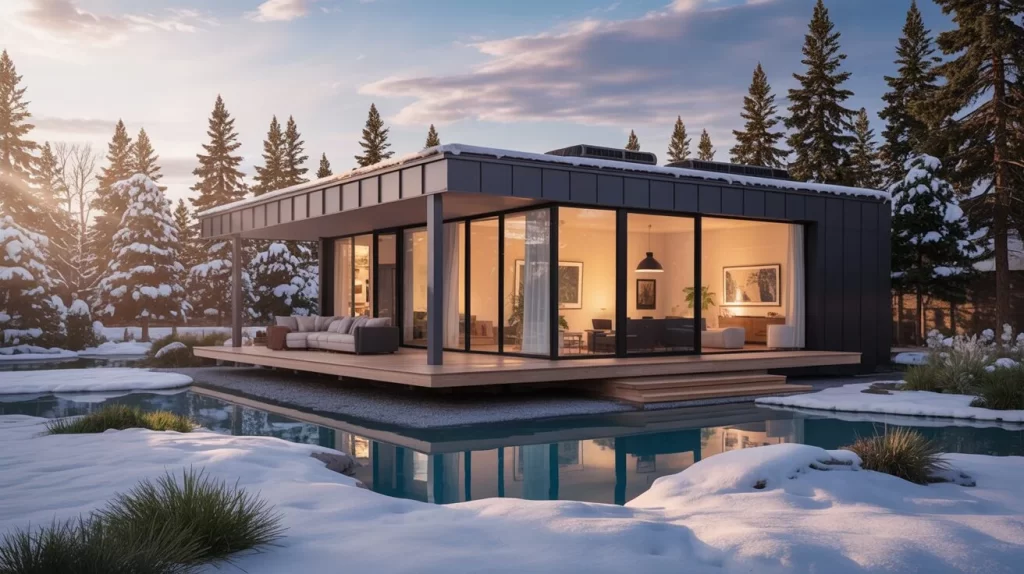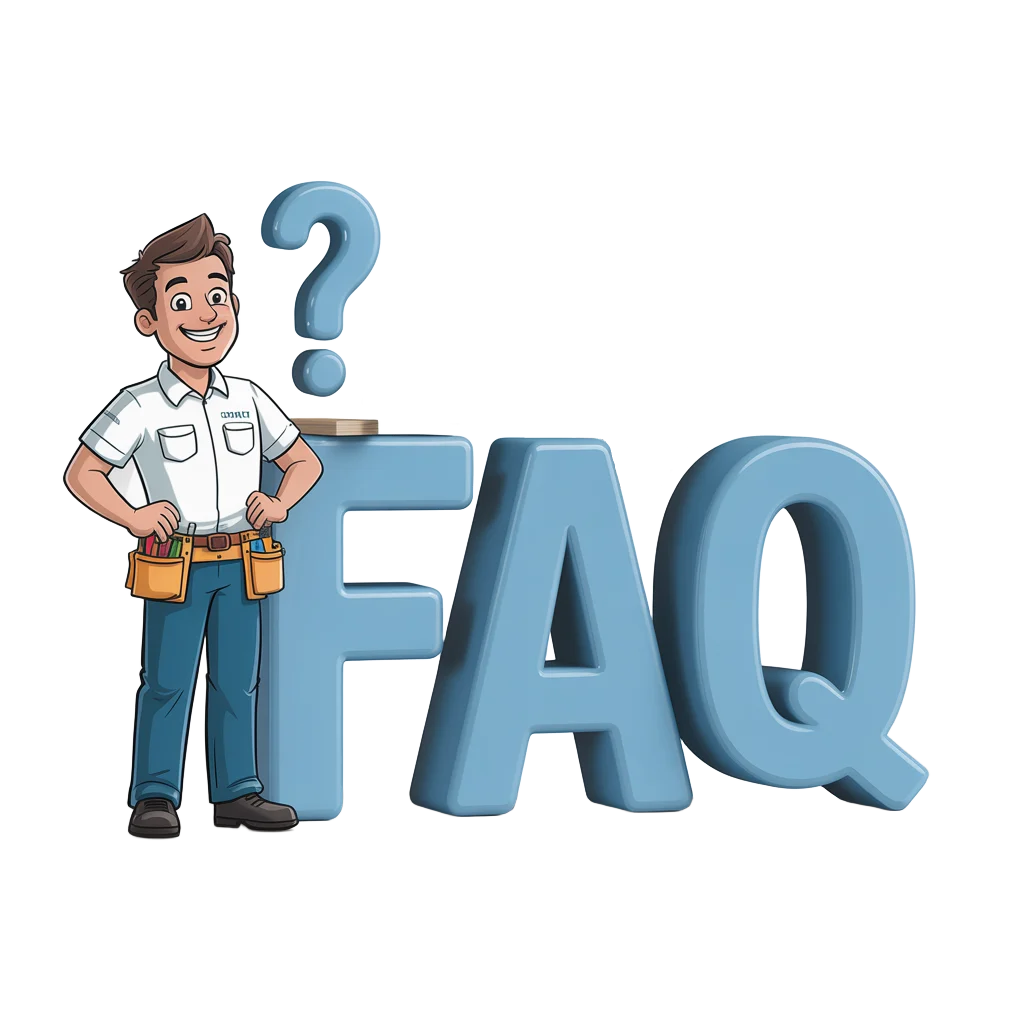Air source heat pumps offer you six game-changing benefits that’ll transform your home’s comfort and efficiency. You’ll slash energy bills by up to 50% thanks to their 2-3 coefficient of performance that transfers heat instead of generating it. These dual-purpose systems provide year-round heating and cooling while automatically filtering your indoor air, capturing dust and allergens. They’re environmentally friendly, reducing your carbon footprint while boosting property value and requiring minimal maintenance with smart technology integration that guarantees peak performance throughout the seasons.
Exceptional Energy Efficiency and Performance
When you’re tired of watching your energy bills climb every month, air source heat pumps offer a rejuvenating, efficient solution that works more like a smart energy multiplier than a traditional heater. Your air source heat pump delivers exceptional energy efficiency by transferring heat rather than generating it—think of it as moving warmth instead of creating it from scratch. This heating system typically achieves a Coefficient of Performance around 2-3, meaning you’ll get three units of heat for every unit of electricity consumed. Heat pump installation represents a long-term investment that’s compatible with existing systems while delivering cost savings, environmental benefits, improved indoor air quality, and dual functionality.
Significant Long-Term Cost Savings
You’re probably wondering if the upfront investment in an air source heat pump will actually pay off – and honestly, that’s a smart question to ask. The good news is that most homeowners see their energy bills drop by up to 50% compared to traditional heating systems, which means you’ll likely recoup your initial costs within just a few years. Beyond the monthly savings, installing a heat pump typically boosts your property value, making it one of those rare home improvements that pays you back twice.
Reduced Energy Bills
Three compelling factors make air source heat pumps a financial game-changer when it comes to your monthly energy bills. These systems deliver exceptional energy efficiency by producing 2-3 units of heat for every unit of electricity consumed, dramatically lowering operational costs compared to traditional heating methods.
Your reduced energy bills stem from several key advantages:
This smart home improvement transforms energy consumption patterns permanently.
Higher Property Value
Installing an air source heat pump doesn’t just save you money on monthly bills—it transforms your home into a more valuable asset that’ll pay dividends when it’s time to sell. Energy-efficient heat pumps represent a smart, long-term investment that modern buyers actively seek. The dual functionality of heating and cooling, combined with renewable energy compatibility, makes your property stand out in today’s market. You’ll benefit from available financial incentives now while building home value for later. Plus, improved indoor air quality and substantial cost savings create compelling selling points that justify premium pricing when you’re ready to move.
Year-Round Heating and Cooling Functionality

While most heating and cooling systems force you to choose between a furnace for winter and an air conditioner for summer, air source heat pumps give you both functions in one smart package. This dual functionality means you won’t need separate units cluttering your property or doubling your installation costs.
Your heat pump works like a refrigerator in reverse – it moves heat rather than creating it, boosting energy efficiency year-round:
This long-term investment simplifies your entire heating and cooling system.
Enhanced Indoor Air Quality and Filtration
You’ll discover that air source heat pumps don’t just control temperature – they’re quietly working as air purifiers throughout your home. These systems pull outdoor air through advanced filtration components that capture dust, pollen, and other airborne particles before distributing clean air to every room. It’s like having a whole-house air cleaner that runs automatically while heating or cooling your space.
Advanced Air Filtration Systems
Beyond simply moving air around your home, modern air source heat pumps function as sophisticated air purification systems that actively clean and filter the air you breathe every day. These advanced air filtration systems work continuously, trapping particles that traditional heating systems simply recirculate.
Your heat pump’s dual functionality extends beyond temperature control to deliver improved indoor air quality through:
This creates healthier indoor air while maintaining energy efficiency, especially benefiting those with respiratory issues.
Environmental Sustainability and Reduced Carbon Footprint
When homeowners choose air source heat pumps, they’re making one of the most impactful decisions for environmental sustainability available in residential heating and cooling. Heat pumps offer exceptional energy efficiency by transferring heat rather than burning fossil fuels, dramatically cutting your home’s environmental impact.
Consider these key environmental benefits:
You’re fundamentally choosing a system that works like nature’s own heat transfer process.
Smart Technology Integration and Low Maintenance Requirements
Modern air source heat pumps aren’t just efficient heating and cooling systems—they’re smart home companions that practically run themselves. Smart technology integration lets you control temperature remotely through apps, optimizing efficiency while delivering cost savings. These systems learn your preferences, adjusting automatically for improved indoor air quality and reduced energy consumption. Low maintenance requirements mean fewer headaches—just occasional filter changes and annual checkups. Their dual functionality handles both heating and cooling with minimal intervention. With longevity and reliability spanning 15-20 years, you’ll enjoy environmental benefits without constant upkeep, making them ideal for busy homeowners seeking hassle-free comfort.

Frequently Asked Questions
How Much Space Is Required for Outdoor Unit Installation?
You’ll need about 3-4 feet of clearance around your outdoor unit for proper airflow. The compact design fits most yards, but you should consider noise levels and accessibility for maintenance when choosing placement.
What Government Rebates or Tax Incentives Are Available for Heat Pumps?
You’ll find various governmental and local incentives for heat pump installation, including potential tax credits and rebates for eco-friendly upgrades. Consult local installers to access available financial assistance programs.
Can Air Source Heat Pumps Work With Existing Ductwork Systems?
Yes, you can use air source heat pumps with your existing ductwork systems. They’re designed to retrofit into most homes and work alongside current heating systems, making installation straightforward for qualified professionals.
How Long Does Typical Heat Pump Installation Take to Complete?
You’ll typically need one to three days for heat pump installation completion. The exact timeframe depends on your home’s complexity, existing ductwork conditions, and if you’re replacing an old system or installing new equipment.
What Happens to Heat Pump Performance During Extreme Weather Conditions?
Heat pump performance decreases in extreme cold temperatures, but they’ll still operate effectively in sub-zero conditions. During extreme heat, efficiency may drop slightly, though modern units are designed to handle temperature extremes reliably.